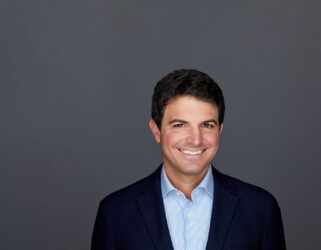The COVID-19 crisis has destroyed economic activity and shredded capital, but it also presents a rare opportunity to build our economies back up better, more resilient, inclusive and environmentally sustainable.
In the first annual meeting of E4S — the Enterprise for Society Center, a unique collaboration between three leading academic institutions — they called for urgent action to address some of society’s worst ills including climate change.
Jean-Pierre Danthine, Managing Director of E4S and Professor at EPFL (the Ecole Polytechnique Fédérale de Lausanne), called for a new social contract between academia, enterprise and society.
This reflects in the mission of E4S, which promotes dialogue between researchers, educators and practitioners working to tackle the toughest problems in the world today.
“We will be on a sustainable path only when we respect the planet and therefore protect the living conditions of our children,” Danthine says. “To be provocative, this is the essence of capitalism. The capital in capitalism must not be restricted to physical capital; it must include all that is valued in society.”
He also announced the launch of a new master’s degree in sustainable management and technology, to prepare students to drive the transition towards a more resilient and environmentally responsible and inclusive economy, while harnessing the power of technology.
It is a joint center drawing on the expertise of the members of E4S — IMD, EPFL and the University of Lausanne (UNIL).
Academia has a starring role to play in the transition to a sustainable world
Nouria Hernandez, Rector of UNIL, calls on institutions of higher education to follow their moral imperative to act to protect the long-term future of people and the planet. “Only so much of our natural resources are left,” she says. “We will run out soon enough for it to affect our children.” Most people fear change, she says, and the urgency of the need to act is not visible.
But if the problem (rising emissions) is simple, the solution is complicated. Therefore, positive change requires interdisciplinary collaboration.
“This is exactly the type of problem universities should tackle,” Hernandez says. “It concerns things as different as the calculation of Co2 emissions to human behavior. And ultimately our survival. That is why I am so excited about E4S.”
This perspective was echoed by Martin Vetterli, President at EPFL, who says: “We can look at these problems in a holistic way. This is really what it takes. Technology alone is not going to solve problems. Having great ideas without having technologies that deliver, won’t either. And if the real economy won’t adjust, we can’t hand over the planet to our children.”
Jean-François Manzoni, President of IMD, says that his institution also has a responsibility to help in the transition to a more inclusive and ecologically sustainable economic system. He outlined three ways to do this.
First, by helping organizations and executives to understand the urgency of the situation. Second, by helping leaders and organizations understand the link between more inclusive and sustainable behavior and short-term and longer-term profitability. Third, through research activity that helps organizations to put purpose at the core of strategy.
Says Manzoni: “One of our roles is to highlight that, increasingly, it will not only be possible for organizations to do well (financially) by doing good (for the world), it will only be possible to do well by doing good. Because governments, regulators, communities and society in general will increasingly force organizations to internalize the social and environmental cost of their actions.”
Balancing purpose and profit
Colin Mayer, Professor of Management Studies at University of Oxford’s Saïd Business School, calls for a fresh understanding of the purpose of corporations in a conversation with Anand Narasimhan, IMD Dean of Faculty and Research, who also leads the research pillar of E4S.
He highlights a recent shift from a profit maximization doctrine spread by the late Chicago economist Milton Friedman to a recognition that the purpose of business is to serve all its stakeholders.
This shift was reflected, Mayer argued, by the statement from the Business Roundtable group of top chief executives last year that essentially said maximizing shareholder value was no longer the priority.
“The purpose of business is to solve the problems that you and I as individuals, society and the natural world face,” Mayer says. “And to do so in a form that is commercially viable. It’s not about philanthropy or charity; it’s about hard-nosed business.”
He argues that a clear purpose can help organizations to be more resilient to future shocks: “Crises destroy economic activity and capital but they also create it, because they create new problems for us to solve.”
For example, he highlights the current coronavirus pandemic. “It requires new ways of working, communicating, traveling, socialising and entertaining,” says Mayer. “The way we have been experiencing life has been fundamentally changed, and that creates tremendous opportunities for businesses moving forward.”
E4S aims to support organisations as they seek to capitalize on these opportunities, and also help facilitate the broader transition to a more sustainable, inclusive planet for everyone.



